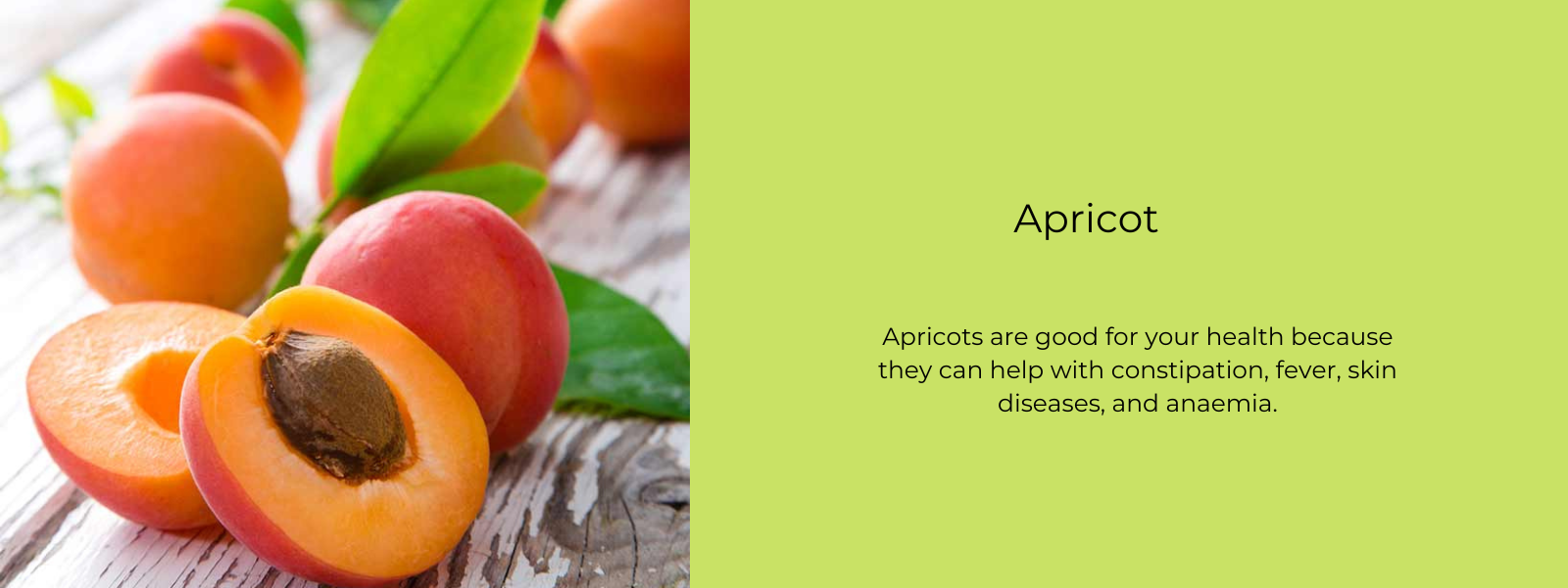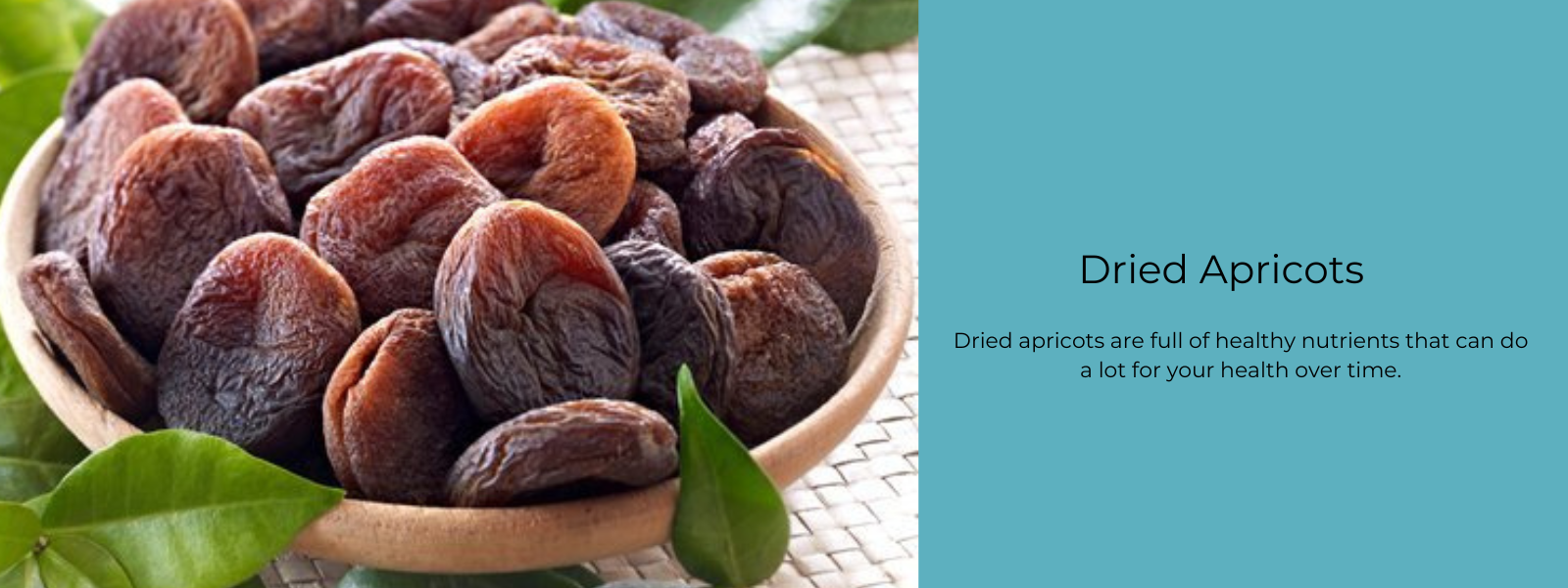Apricots establish a sweet connection to gut health through their rich nutritional profile. Packed with dietary fiber, both soluble and insoluble, apricots play a vital role in supporting digestive well-being by promoting regular bowel movements and preventing constipation. Their prebiotic potential nourishes beneficial gut bacteria, fostering a balanced gut microbiome. Additionally, the natural sugar alcohol sorbitol in apricots contributes to gentle laxative effects, aiding in smooth digestion. With a high water content, apricots also support hydration, a crucial factor for optimal digestive function. Rich in vitamins, antioxidants, and boasting an alkaline nature, apricots contribute to overall digestive health and may help maintain pH balance in the body. Whether enjoyed fresh, dried, or incorporated into culinary delights, apricots offer a delicious and nutritious way to sweeten the connection to gut health while providing essential vitamins and antioxidants for overall well-being.
Table of Contents
What Is Apricot?
An apricot is a small, round or oval fruit with a soft, velvety skin and a sweet, juicy flesh. Scientifically known as Prunus armeniaca, apricots belong to the Rosaceae family and are closely related to other stone fruits such as peaches, plums, and cherries. The apricot tree is native to Central Asia and is now cultivated in various regions with temperate climates around the world.
Key Features of Apricots:
- Appearance: Apricots typically have a smooth or slightly fuzzy skin that can range in color from pale yellow to orange. The flesh inside is juicy and ranges from pale yellow to deep orange.
- Flavor and Texture: Apricots have a sweet and slightly tart flavor with a tender, velvety texture. The taste can vary depending on the variety and ripeness of the fruit.
- Pit or Stone: Like other stone fruits, apricots have a large, hard pit or stone at the center. The pit is usually removed before eating or cooking with apricots.
- Nutritional Content: Apricots are a good source of vitamins and minerals, including vitamin A, vitamin C, potassium, and dietary fiber. They are also rich in antioxidants, which contribute to their health-promoting properties.
- Culinary Uses: Apricots can be enjoyed fresh as a snack or used in various culinary applications. They are commonly used in desserts, jams, preserves, and salads. Dried apricots are popular as a convenient and nutritious snack.
- Seasonality: Apricots are typically in season during late spring and early summer, depending on the region. The fruit is harvested when fully ripe to ensure optimal flavor and sweetness.
- Health Benefits: The nutritional profile of apricots contributes to various health benefits, including supporting digestive health, providing essential vitamins and minerals, and offering antioxidants that may help combat oxidative stress.
How Does Apricot Help In Digestion?
Apricots can be beneficial for digestion due to several reasons, primarily attributed to their dietary fiber content and other nutritional elements. Here's how apricots contribute to digestive health:
- Dietary Fiber:
- Apricots are a good source of dietary fiber, which is essential for digestive health. Fiber adds bulk to the stool, promoting regular bowel movements and preventing constipation. The soluble fiber in apricots also helps in water absorption, contributing to the softening of stool.
- Prebiotic Potential:
- The fiber content in apricots, especially soluble fiber, acts as a prebiotic. Prebiotics are non-digestible compounds that nourish beneficial bacteria in the gut. A healthy gut microbiome, supported by prebiotics, is associated with improved digestion and overall well-being.
- Sorbitol Content:
- Apricots contain sorbitol, a natural sugar alcohol with mild laxative effects. Sorbitol can help soften stool and alleviate constipation. However, it's essential to consume apricots in moderation, as excessive intake of sorbitol may lead to digestive discomfort for some individuals.
- Hydration Support:
- Apricots have a high water content, contributing to overall hydration. Staying well-hydrated is crucial for maintaining soft and easily passable stools, aiding in the prevention of constipation.
- Rich in Antioxidants:
- The antioxidants in apricots, including vitamins A and C, help combat oxidative stress in the digestive system. Oxidative stress can contribute to inflammation, and the antioxidants in apricots may play a role in maintaining a healthy gastrointestinal tract.
- Gentle Laxative Effect:
- The natural sugars, fiber, and sorbitol in apricots can have a gentle laxative effect, promoting a healthy and regular digestive process without causing irritation.
- Alkaline Nature:
- Apricots have an alkaline nature, which may help balance the body's pH levels. An alkaline environment in the body is believed to support digestive health and reduce the risk of certain digestive issues.
- Versatility in Culinary Uses:
- Apricots are versatile and can be enjoyed fresh, dried, or incorporated into various dishes. Whether added to salads, desserts, or consumed on their own, apricots provide a delicious and nutritious way to support digestive well-being.
Best Ways To Incorporate Apricot For Better Digestion:
To consume apricots for better digestion, you can incorporate them into your diet in various ways. Here are some suggestions:
- Fresh Apricots:
- Enjoy fresh, ripe apricots as a snack on their own.
- Add sliced fresh apricots to yogurt or cereal for a tasty and nutritious breakfast.
- Include fresh apricots in fruit salads for a refreshing and fiber-rich dish.
- Dried Apricots:
- Snack on dried apricots for a convenient and portable option. Ensure they are unsweetened and without added preservatives.
- Chop dried apricots and add them to trail mix or homemade granola for a sweet and fiber-packed snack.
- Apricot Smoothies:
- Blend fresh or dried apricots into smoothies. Combine them with other fruits, yogurt, and a liquid of your choice for a delicious and digestive-friendly beverage.
- Apricot Compote or Sauce:
- Make a simple apricot compote or sauce by simmering fresh or dried apricots with a bit of water and a sweetener of your choice. Use it as a topping for yogurt, oatmeal, or desserts.
- Apricot and Nut Bars:
- Create homemade energy bars by mixing chopped dried apricots with nuts, seeds, and a binder like honey or nut butter. Press the mixture into bars for a nutritious and fiber-filled snack.
- Grilled Apricots:
- Halve fresh apricots and grill them for a warm and caramelized treat. Grilled apricots can be served as a side dish or dessert.
- Apricot Salad:
- Combine fresh apricots with leafy greens, nuts, and cheese to create a flavorful salad. The combination of textures and flavors can be both satisfying and digestive-friendly.
- Apricot Chia Pudding:
- Make a chia pudding by soaking chia seeds in almond milk or yogurt and adding diced fresh apricots. Allow it to set in the refrigerator for a nutritious and fiber-rich dessert or breakfast.
- Apricot Salsa:
- Create a refreshing salsa by combining diced fresh apricots with tomatoes, onions, cilantro, and lime juice. Use it as a topping for grilled chicken or fish.
- Apricot Infused Water:
- Add sliced fresh or dried apricots to your water for a subtly flavored and hydrating beverage. This can encourage increased fluid intake, supporting overall digestion.











Leave a comment